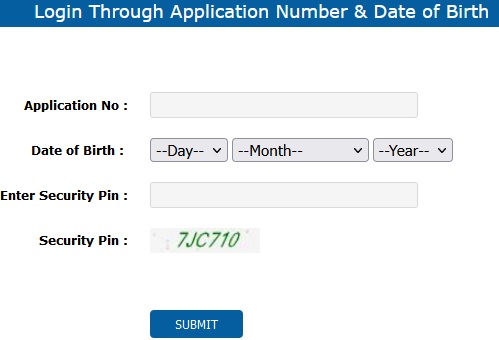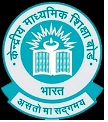CBSE CTET January 2024 Download Admit Card Central Teacher Eligibility Test : Central Board of Secondary Education
Organisation : Central Board of Secondary Education CBSE
Recruitment Name : Central Teacher Eligibility Test (CTET) January 2024
Announcement : Download Admit Card
Exam Date : 21st January 2024
Website : https://ctet.nic.in/
How to Download CTET Admit Card?
Date of Examination 21st January, 2024. To Download Admit Card for Central Teacher Eligibility Test (CTET) January 2024, just follow the below steps,
Steps :
Step-1 : Go to the Link https://examinationservices.nic.in/ExamSysCTET/downloadAdmitCard/AuthCandCTET.aspx
Step-2 : Enter Application Number
Step-3 : Enter Date of Birth
Step-4 : Enter Security Pin
Step-5 : Click on “Submit” Button
Related / Similar Admit Card : CGPDTM Download Admit Card Examiner of Patents and Designs 2023

Structure of CTET Central Teacher Eligibility Test
All questions in CTET will be Multiple Choice Questions (MCQs), with four alternatives out of which one answer will be most appropriate. Each carrying one mark and there will be no negative marking.
There will be two papers of CTET.
(i) Paper I will be for a person who intends to be a teacher for classes I to V.
(ii) Paper II will be for a person who intends to be a teacher for classes VI to VIII.
Note: A person who intends to be a teacher for both levels (classes I to V and classes VI to VIII) will have to appear in both the papers (Paper I and Paper II).
Paper I (for Classes I to V) Primary Stage; Duration of examination-Two-and-a-half hours
Structure and Content (All Compulsory): (Appendix I)
(i) Child Development and Pedagogy(compulsory) 30MCQs 30Marks
(ii) Language I(compulsory) 30MCQs 30Marks
(iii) Language II(compulsory) 30MCQs 30Marks
(iv) Mathematics 30MCQs 30Marks
(v) Environmental Studies 30MCQs 30Marks
Total 150MCQs 150Marks
Nature and standard of questions:
** The test items on Child Development and Pedagogy will focus on educational psychology of teaching and learning relevant to the age group of 6-11 years. They will focus on understanding the characteristics and needs of diverse learners, interaction with learners and the attributes and qualities of a good facilitator of learning.
** The Test items in Language I will focus on the proficiencies related to the medium of instruction.
** The Test items in Language II will focus on the elements of language, communication and comprehension abilities.
** Language II will be a language other than Language I. A candidate may choose any one language as Language I and other as Language II from the available language options and will be required to specify the same in the Confirmation Page.
** The Test items in Mathematics and Environmental Studies will focus on the concepts, problem solving abilities and pedagogical understanding and applications of the subjects. In all these subject areas, the test items will be evenly distributed over different divisions of the syllabus of that subject prescribed for classes I-V by the NCERT.
** The questions in the test for Paper I will be based on the topics prescribed in syllabus of the NCERT for classes I – V but their difficulty standard as well as linkages, could be up to the Secondary stage.

Syllabus of Central Teacher Eligibility Test
Paper I (forclasses1toV) Primary Stage
I. Child Development and Pedagogy 30Questions
a) Child Development(Primary School Child) 15Questions
** Concept of development and its relationship with learning
** Principles of the development of children
** Influence of Heredity& Environment
** Socialization processes: Social world & children(Teacher, Parents, Peers)
** Piaget, Kohlberg and Vygotsky: constructs and critical perspectives
** Concepts of child-centered and progressive education
** Critical perspective of the construct of Intelligence
** Multi-Dimensional Intelligence
** Language & Thought
** Gender as a social construct; gender roles,gender -bias and educational practice.
** Individual differences among learners, understanding differences based on diversity of language, caste, gender, community, religion etc.
** Distinction between Assessment for learning and assessment of learning; School-Based Assessment, Continuous & Comprehensive Evaluation: perspective and practice
** Formulating appropriate questions for assessing readiness levels of learners; for enhancing learning and critical thinking in the classroom and for assessing learner achievement.
b) Concept of Inclusive education and understanding children with special needs 5 Questions
** Addressing learners from diverse back grounds including disadvantaged and deprived
** Addressing the needs of children with learning difficulties, “impairment” etc.
** Addressing the Talented, Creative, Specially baled Learners
c) Learning and Pedagogy 10 Questions
** How children think and learn; how and why children “fail” to achieve success in school performance.
** Basic processes of teaching and learning; children’s strategies of learning; learning as a social activity; social context of learning.
** Child as a problem solver and a“ scientific investigator”
** Alternative conceptions of learning in children, understanding children’s “errors” as significant steps in the learning process.
** Cognition & Emotions
** Motivation and learning
** Factors contributing to learning-personal& environmental

Recent Comments